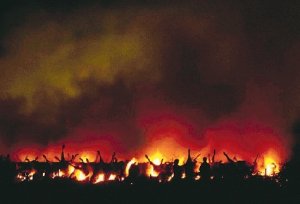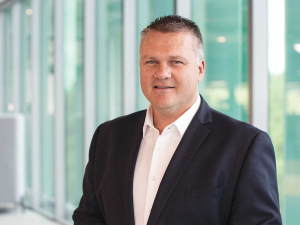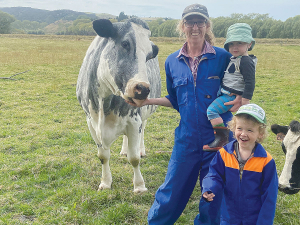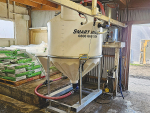And he believes there is a hole the size of Titanic in Australia’s defence, threatening this country’s ability to respond.
“You only have to watch television programmes such as Border Control to see the amount of food and foodstuffs coming into the country.
“People are sneaking in sausages and salamis and raw unprocessed cheeses. FMD is endemic in the Middle East. It’s occurring regularly in our Asian neighbourhood. The Government spent millions helping push it back out of Indonesia, which was a great investment in Australia’s border control that we should be really proud of because we don’t need it that close.”
Bonanno recently appraised a 105-page review of Australia’s preparedness for FMD, which was commissioned by the secretary of the Australian Government Department of Agriculture, Fisheries and Forestry (DAFF). It estimated a FMD outbreak would cost between A$7.1 billion (for a small, three-month outbreak) and A$16 billion (for a 12-month outbreak).
It also reported that control and compensation would range from A$25 million to A$600 million respectively — without including in the economic impact of trade restrictions.
Yet Bonanno says he feels the review failed to acknowledge the most critical people in Australia’s first line of defence: its cattle veterinarians.
“It’s a nice report in that it identifies risk factors, but there’s absolutely no mention that the response to any exotic disease outbreak is almost entirely reliant on private practitioners leaving their businesses to respond.
“What if the vets decide not to come? What if they can’t afford to come? There’s an assumption in there that I find offensive. That complacency takes us for granted. It looks like we’ve been put in the too-easy basket.
“The reality of this report is there is no point having a whole army of generals when they haven’t even made sure the foot soldiers are going to turn up.”
Australia has a veterinarian reserve force of about 100 people, which Bonanno says will rapidly be overwhelmed.
And private veterinarians would be faced with some choices.
“What happened in the UK was they were using cat and dog vets because they simply ran out of cattle vets — and that would happen here in Australia as well. There’s probably only about 1200 to 1500 of us here.”
In Bonanno’s co-owned Shepparton Veterinary Clinic practice in northern Victoria, they have 11 vets, seven nurses and eight reception staff to consider (1.5 support staff for every vet).
“If we send five of our vets, that means about eight other staff are impacted — currently at both mine and my partners’ costs. It would make more sense for the Government to pay veterinarians who have rural practices to train nominated staff to maintain a level of readiness [with an accredited and audited programme].
“What our practice could potentially do in an outbreak is have three vets, a receptionist and a nurse trained who are immediately able to hit the ground running as a team.”
Instead, the report talks of using government department volunteers as the vets’ support personnel.
“Geelong didn’t win the [AFL] grand final by turning up the night before and putting together the best group of individuals they could find. They built the team from the pre-season, and they worked together all the way through the competition, and they arrived on grand final day with a team ready to play.
“At the moment, using volunteers would be a shambles because they’d be pulling people in from all sorts of government departments and getting them to answer phones — and the person at that first-response point needs to be good at what they do. Our support staff are trained to talk to people at a time of maximum stress — probably the most stress that we’ll ever all be under if there was a significant FMD outbreak.”
Bonanno says a capable support team would help ease the extreme situation and allow vets to work faster and more efficiently.








